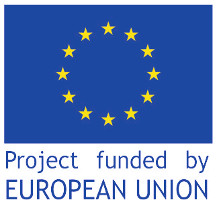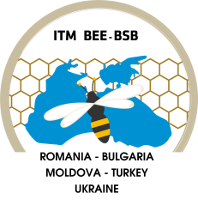Natural disasters, such as hail, downpours and cold springs, have made 2021 a failure for many agricultural sectors. To find out what this season was like for the beekeeping industry, SEEDS journalists interviewed more than 50 beekeepers from different regions of the country, as well as industry experts. In the north of Poltava region and the south of Chernihiv region, bees sometimes overwintered unsuccessfully - beekeepers recorded a higher mortality rate after wintering. In some regions (Khmelnytsky, Sumy regions, etc.) some beekeepers lost more than half of bee colonies after treating the fields with plant protection products. This is most often due to the fact that some farmers violate the rules of field cultivation - for example, apply PPE during the day. What is the situation with the honey collection? "There is almost nothing in the Carpathians, the spring is cold, the summer is hot, two days of heat are almost 40 degrees, then the cold is a week, which will bring something to eat in the cold," said beekeeper Mykhailo Dranchuk. Beekeepers also complain that more and more self-pollinating hybrid crops (buckwheat, sunflower, etc.) have recently appeared, which leads to a reduction in the base for honey collection. However, those beekeepers who migrate have a slightly better situation, but also worse statistics. “We got a third of honey comparing to last year. From acacia and linden, which brought and ate, sunflower was carried, but not much because after 10.30 -11.00 nectar was not released. Farmers have plowed everything they could, honey herbs are disappearing, there is no sowing. Buckwheat is genetically modified, bees do not even sit on flowers. And in some fields, sunflowers also appeared strange, ”said Serhiy Tytarenko from Poltava region. "Honey is half of last year," says Stanislav Kuchkovsky, a beekeeper from the Chernihiv region. In Poltava, Sumy and Kharkiv regions, beekeepers talk about reducing the fee by 30-50%, but the situation varies depending on the area and the possibility of migration. "The honey harvest is the same as last year - an average of 30 kilograms per family," says Vadim Konopchuk, a beekeeper from the Khmelnytsky region. "I managed to collect an average of 33 kilograms of sunflower from my family," said Mykola Rybolov, a beekeeper from the Kirovohrad region. “This year's honey harvest is a bit worse than last year. Sunflower and weeds produced an average of 25 liters per family, ”says Viktor Miroshnychenko from Kamyansky (Dnipropetrovsk region). “I have a stationary apiary in the north of Khmelnytsky region. Honey is twice less than in previous years. On average, 15 kg of rapeseed per family, acacia - 8 kg, dormice - 15 kg, ”said beekeeper Serhiy Oleksyuk. Retail prices for honey “Compared to 2020, honey prices in 2021 have already increased by UAH 100-150 depending on the variety. This is caused by a number of factors, including: lack of May honey; acacia honey was harvested only 30-35% due to heat; increased costs for apiary maintenance and inventory; death of bees due to poisoning by pesticides and agrochemicals. The most expensive honey today is acacia and linden honey. Prices for them reach up to UAH 300 per kilo. The issue of bee deaths due to the use of pesticides and agrochemicals during their flight is acute. Therefore, in order to minimize the risks of adverse effects of pesticides and agrochemicals on wildlife, including bees, it is necessary to establish clear labeling requirements for pesticides and agrochemicals with mandatory information on their impact on non-target objects, as well as information on existing prohibitions. and restrictions on their use. The availability of such information will increase the level of awareness of agricultural producers about the existing prohibitions and restrictions that must be observed when using pesticides and agrochemicals, as well as protect against the risks of their negative impact on non-target objects, including bees. To date, such legislative changes have already been prepared by MPs in the draft №5237, which will soon be considered in the Verkhovna Rada.
Last updated: 20 - Sep - 2021




